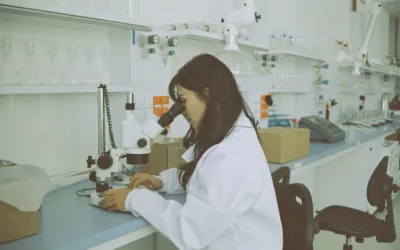
Ammar Badwy | Posted on April 2, 2020
Effect of the Coronavirus on the global pharma supply chain
With the current COVID-19 pandemic, we live in turbulent times where the pharmaceutical and medicine industries must stay operational. Many people are worried about this and have a hard time determining the current situation in the industry. To shed some light on the COVID-19 situation in the pharmaceutical industry, we have assembled a survey and asked our user base for their feedback.
Our user base consists of pharmaceutical professionals spread over all kinds of specialisms. Medicine makers, raw material producers, intermediate producers, pharmacists, and other specialists have responded to our survey. We hope to give an insight into the current situation and what kind of developments we can expect! There were 117 participants in our survey.
Size of the companies
- 51-250 people 26,7%
- 0-10 people 25%
- 11-50 people 23,3%
- 251-500 people 10,3%
- 501-1000 people 7,8%
- more than 1000 6,9%
Companies in our audience
- Medicine maker 45%
- Trader 43%
- API manufacturer 18%
- R&D 16%
- Other 13%
- Intermediate manuf. 12%
- Excipient manuf. 6%
Delays in the production process
To learn more about the current situation, we have asked our user base if their company is operating at full capacity. A large group of medicine producers and raw material suppliers aren’t running at full capacity at the moment; This could be due to people not being able to work because of illness or being forced to work at home, which isn’t a possibility for everyone, such as people who work in production.
Production capacity
- Closed 12%
- Nearly closed 6%
- Half capacity 12%
- Nearly full capacity 19%
- Full capacity 46%
Of course, being unable to run at full capacity has its consequences. Production delays are to be expected, which is also what we found in our data analysis. Half of the producers of pharmaceutical raw materials have indicated that they already experience delays in their production process. In the group of medicine makers we surveyed, nearly three-quarters have indicated that their production process has taken a dent and delays have occurred due to the COVID-19 pandemic.
Currently experiencing delays
- Raw material producers 50%
- Medicine producers 70%
Production capacity
Medicine makers depend on many external parties in their production process, and we can’t forget the local laws and regulations. Usually, specific suppliers are defined in a product dossier, and it isn’t always simple or even possible to switch from suppliers temporarily. Due to laws and regulations, it can be a time-consuming process.
“Factories are slowing down production, and it is hard to find a way of transporting the goods.”
-Pharmaceutical trading company-
Going back to the delays we talked about earlier: out of the raw material producers and medicine makers that aren’t experiencing any delays yet, about half of the medicine makers are expecting delays to occur in the near future, and out of the raw material producers nearly three-quarters is expecting delays soon. However, the general consensus seems to be optimistic. Even though a large group is experiencing delays, 90% of the same group of raw material producers expects the delays to be resolved within the next three months. Out of the medicine makers, this number is 66%.
Shortages in the entire supply chain
Raw materials (APIs) are important for medicine makers, but there’s more to the process than just having the API—logistics, packing materials, cleaning supplies, other raw materials such as excipients, etc. About half of the medicine makers and raw material producers have encountered problems with logistics, and around 70% have issues with being able to purchase their raw materials.
Even a lack of disinfectants such as isopropyl alcohol or face masks is causing issues, as nearly a quarter of API producers have indicated problems with these supplies. This number goes up to nearly s half in the group of medicine makers. Because of this, many medicine makers were forced to switch from their usual supplier for raw materials and the like, even though switching suppliers can be tricky, as we explained earlier.
“47% was forced to change raw material supplier.”
-It’s difficult and time-consuming for medicine makers to change from supplier-
Medicine shortages
In the questionnaire, we have also asked in which regions the respondents are active with their business. Because some regions in the world are affected more by the COVID-19 pandemic than others, it would be possible that a certain region would see more effects in shipments than in other regions. We found that in the regions currently most affected by the COVID-19 pandemic, Europa and Asia; our respondents have noticed the largest effect in shipments to these regions.
Affected shipments or no supply at all
Percentage of sales that are affected
- Europe 37%
- Asia 41%
- Latin America 32%
- USA 17%
- Africa 26%
- Oceania 29%
Our users expect that the medicine groups that may be the most affected are:
- Anti-infectives for systemic use
- Respiratory system
- Cardiovascular system
Conclusion
Our survey results may be subject to response bias, causing an overestimation of the number of problems that occur because of the COVID-19 pandemic. Even though it seems that many companies are affected by the COVID-19 pandemic, it is causing problems in the entire pharma supply chain. This could have consequences for the availability of medicine in the short- and long term.







Check out all other blogs here!